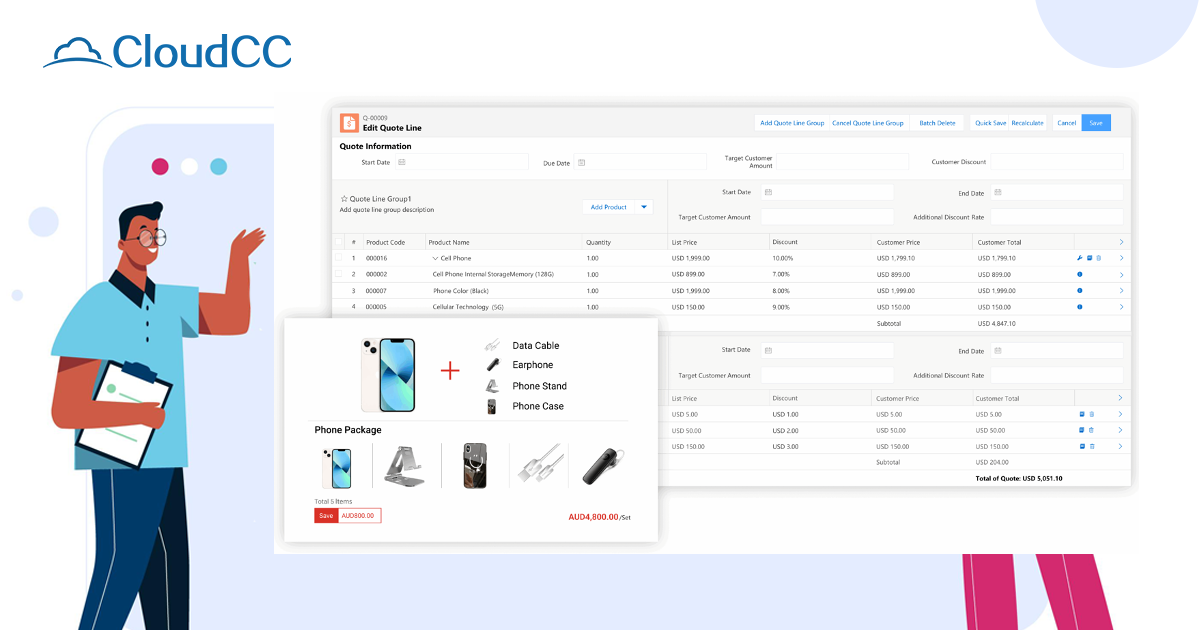
CRM Software for Small Businesses
February 12, 2025In today’s competitive business landscape, small businesses are continually looking for ways to streamline their operations, build stronger customer relationships, and drive growth. One of the most effective tools they can leverage is Customer Relationship Management software(CRM software) . Once reserved for large corporations with extensive budgets, CRM solutions have evolved to cater to the unique needs of small businesses. Today, CRM software is a game-changer, offering small business owners a powerful way to manage customer interactions, increase sales, and boost productivity—all while keeping costs in check.
What is CRM Software for Small Businesses?
CRM software is a tool that helps businesses manage their interactions with customers, clients, and prospects. It centralizes customer data, automates processes, and provides insights into customer behavior, enabling businesses to foster better relationships, improve sales efforts, and make informed decisions. For small businesses, CRM software can simplify tasks such as tracking leads, managing sales pipelines, sending follow-up emails, and handling customer inquiries.
Unlike traditional spreadsheets or disconnected systems, CRM software offers a unified platform where all customer information—contact details, purchase history, and communication records—are stored in one place. This enables small business owners and their teams to have a clear and comprehensive view of every customer interaction.
Key Benefits of CRM Software for Small Businesses
Improved Customer Relationships
One of the primary benefits of CRM software is its ability to enhance customer relationships. By consolidating customer information, small businesses can personalize their communication and tailor their offerings to meet the specific needs and preferences of each customer. Whether it’s sending a personalized email, offering product recommendations, or providing timely follow-ups, CRM software helps small businesses create a more meaningful connection with their customers, ultimately fostering loyalty and increasing retention.
Streamlined Sales Processes
CRM software significantly improves the sales process by automating repetitive tasks and providing a structured framework for managing leads. Small businesses can track prospects through each stage of the sales funnel, from initial contact to final purchase. With features like lead scoring, sales forecasting, and pipeline management, business owners can focus their efforts on high-value leads and close deals more efficiently. Automation of routine tasks, such as follow-up emails or appointment reminders, also ensures that no lead falls through the cracks.
Increased Productivity and Efficiency
For small businesses with limited resources, efficiency is key. CRM software helps businesses automate time-consuming tasks like data entry, scheduling, and customer support. By freeing up valuable time, employees can focus on higher-value activities, such as engaging with customers, closing sales, or developing new marketing strategies. Moreover, CRM platforms often come with integrations for other tools—like email marketing, accounting software, or social media platforms—creating a cohesive workflow that increases overall productivity.
Better Customer Insights and Reporting
CRM software provides small businesses with valuable insights into customer behavior, allowing them to make more informed decisions. Through data analytics and reporting features, businesses can track trends, measure performance, and identify opportunities for growth. For example, small businesses can analyze sales trends, customer purchasing habits, or the effectiveness of marketing campaigns, helping them refine their strategies and focus on areas that yield the highest return on investment.
Cost-Effective Solutions
For small businesses with limited budgets, the affordability of CRM software is a major advantage. Many CRM providers offer scalable pricing plans, including free versions or low-cost options that suit small businesses’ needs. These affordable solutions allow small businesses to take advantage of CRM features without breaking the bank. Additionally, the return on investment (ROI) from improved customer relationships, sales efficiency, and productivity often far outweighs the cost of the software itself.
Choosing the Right CRM for Your Small Business
When selecting a CRM for small business, it’s essential to consider factors like ease of use, customization options, and integration capabilities. Small businesses should look for a CRM that is intuitive, with a user-friendly interface that minimizes the learning curve. Additionally, they should ensure that the CRM can integrate with other tools they already use, such as email marketing software, accounting systems, or e-commerce platforms.
Conclusion
CRM software has become a vital tool for small businesses looking to improve customer relationships, increase sales, and boost efficiency. By offering a centralized platform for managing customer data, automating workflows, and gaining insights into customer behavior, CRM solutions empower small business owners to make smarter decisions and stay ahead of the competition. With affordable options and scalable features, CRM software is no longer just for large enterprises; it’s an essential investment for small businesses that want to grow, thrive, and build long-lasting customer loyalty.









